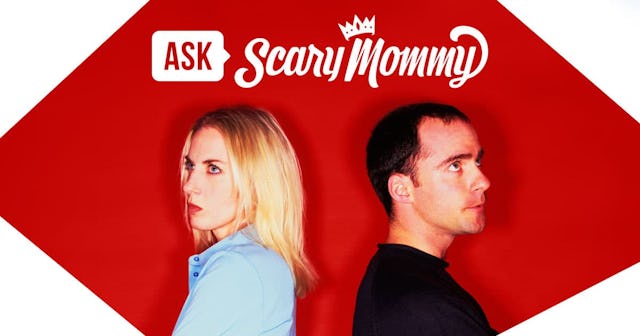Quarantine Is Making Me Realize My Partner And I Are NOT Compatible

Ask Scary Mommy is Scary Mommy’s new advice column, where our team of “experts” answers all the questions you have about life, love, body image, friends, parenting, and anything else that’s confusing you.
This week… What do you when you realize, after months of being at home, you and your spouse or partner are NOT compatible at all? Have your own questions? Email advice@scarymommy.com
Dear Scary Mommy,
Now that I’ve been home with my partner for a few months, I’m starting to wonder what we’re really doing together. Sure, I’ve always known we have different personality types and ways of doing things, but now that we’ve been forced to be home together 24/7, I see more incompatibilities than ever before. She’s strict with the kids about everything: snacking, playtime, screen time, bedtime, etc. I’m more lenient, I guess, because this is a hard time for everyone and cracking down on our kids when they’re missing their friends and school isn’t something I agree with. She has to have control over everything from how to fold our towels to how each of our kids (11, 7, 4) spends their entire day. We fight constantly, and I know no matter how much we try to conceal it, the kids are picking up on the tension. I do my part around the house as much as she does, and I know our kids are lucky to have two moms who love them as much as we do. I don’t know if our relationship problems are a result of us both working from home, parenting, trying to figure out the upcoming school year, keeping our family healthy, etc., or if we’re just totally incompatible. Basically, I’m more of a free spirit, we’ll-clean-it-up-later extrovert and she is a rigid routine ball of nerves. HELP.
RELATED: 40+ Questions To Ask A Guy Whether He’s A New Bae Or Old
Maybe you’re incompatible and not at all right for one another anymore. But let’s try some things first. Communication is the path to so many solutions, so let’s start there. It sounds like you both need to understand one another’s perspectives on how you’re feeling right now, and how you want things to progress as we all embark on the second half of a very, very difficult year. The more you communicate, the more you’ll see where the other one is coming from.
Challenge yourselves to spend less time focusing on each other’s flaws, quirks, and what’s not working. Partnerships are never black and white, so don’t think of each situation or issue between you as either/or. Don’t personalize or victimize yourself (i.e. “I can never do ANYTHING right”). Sometimes bad moods or frustration have nothing to do with you, and everything to do with, well, everything *gestures at the hellscape of 2020.*
Try to encourage your partner when she isn’t as “rigid” as you perceive her to be. If she spontaneously suggests a family hike, or lets a towel get folded into thirds instead of quarters, respond positively — and without condescension.
When you feel a fight brewing, you need to understand the difference between responding and reacting. Especially if the kids are around (and they’re always around, especially now). That means checking your tone, body language, volume, etc. Actively listen. Respond effectively. We’re all human and this is a tough time, but you both need to remember the bigger picture: your kids need to see you two respecting one another, even when you’re angry. You don’t have to shield them from the hardships of partnership, but you two will be the rubric for every relationship they choose as they grow up. Don’t lose sight of that.
Plan some fun. I know childcare is virtually nonexistent for most parents right now, so maybe when the kids are in bed you two can plan a night outside on the patio with drinks, games, a movie, etc. Plan some self-care, too, for each of you while you’re at it. Hold one another accountable for carving some time out for your individual selves as a sign of respect and love.
If none of these ideas work, try counseling for both of you together. If you have the means and the time, of course. You’ll learn so much about yourselves and who you are together — which is valuable no matter how your partnership turns out in the end. Good luck.
This article was originally published on